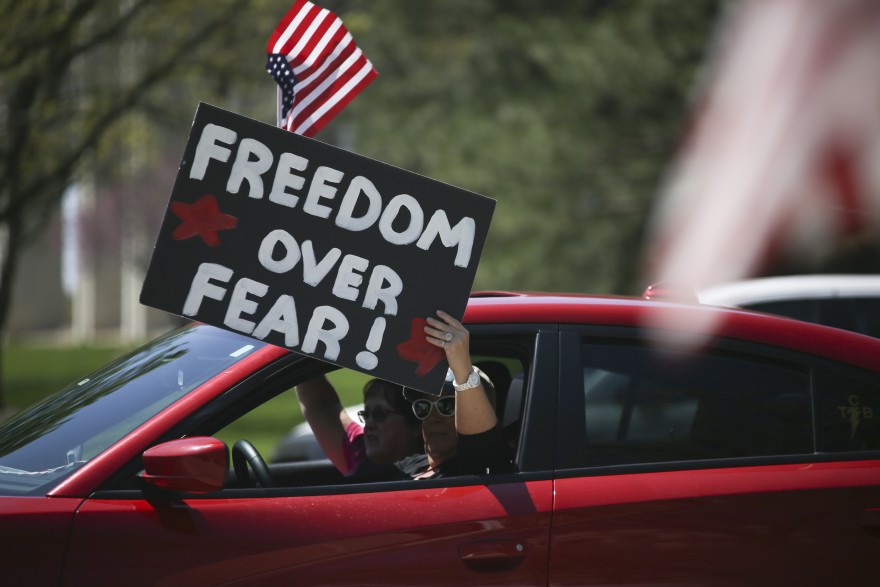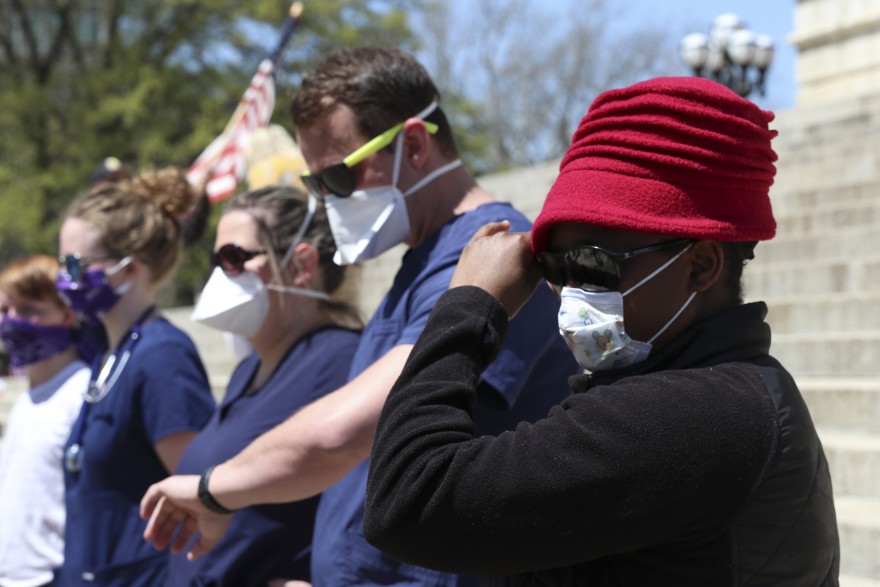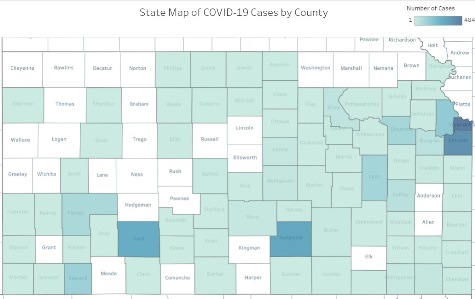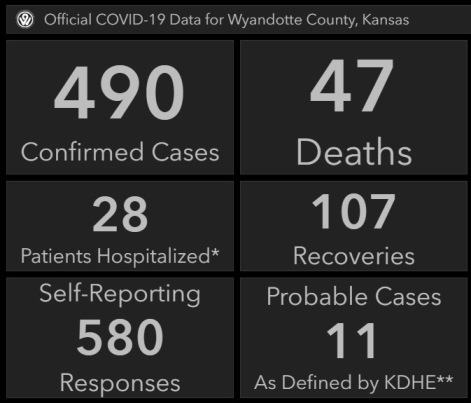by Mary Rupert
U.S. Sen. Jerry Moran said today that more federal funding will go toward testing for COVID-19, including $21 million for more testing in Kansas.
He also discussed funding for small businesses. Congress recently passed a replenishment of the Paycheck Protection Program fund, where the Small Business Administration guarantees loans to small businesses of less than 500 people, he said.
Kansas received $4.28 billion in nearly 27,000 businesses in the first phase, keeping 427 jobs in the state, he said.
Sen. Moran said the money in the first fund was utilized rapidly, the funds were depleted, and the House on Thursday passed legislation adding $310 billion. This is generally an economic bill, having the effect of people allowed to keep their jobs and remain at home, while not having to be at work to receive the wage, he said.
Sen. Moran made his remarks at a news conference Friday morning sponsored by the University of Kansas Health System.
Also, $75 billion more will go to hospitals and another $25 billion will be directed toward testing, Sen. Moran said.
This legislation will provide $21 million to Kansas to increase testing to accomplish the goal of broader testing in Kansas, Sen. Moran said.
Also this week, the Department of Health and Human Services provided the second part of funding from the original $100 billion, and it has been enhanced by another $75 billion, he said. This payment will be based more on Medicaid reimbursement than Medicare reimbursement, he said.
Sen. Moran said his focus for the last few weeks has been making the PPP program available to all hospitals, and unfortunately, the public hospitals in counties, districts and cities have been excluded. He is still lobbying on this topic to make sure some hospitals are not being left out in being able to continue to pay their employees, he added.
Dr. Jessica Kalender-Rich, a doctor of general and geriatric medicine, said they have seen a lot of efforts to ramp up the ways in which residents of nursing homes are protected.
She said they are working hard to provide residents with therapy and what they need, in addition to using a lot of personal protective equipment around them that was not always used in the past because it was not always indicated. Residents are more isolated than usual, with visitors not allowed in nursing homes. She said in many cases, residents have been taught to use iPads and Facetime to connect with their loved ones. Some of the homes allow visits to persons who are at the end of life, she added.
Dr. Kalendar-Rich serves on the Wyandotte County task force recently formed on nursing homes. They are developing guidelines, taking guidance from Centers for Disease Control and Centers for Medicare and Medicaid Services to help facilities create their own policies to protect residents.
She said there is currently testing for COVID-19 in nursing homes for patients who have symptoms, based on the availability of testing supplies and also on the opportunity to get out there and do those tests. She said that will probably change over time.
When there is a positive test, then there is an opportunity to test the entire building, she said. The guidance on that is not fully developed yet at the county level, but that is what they have seen in other parts of the country, she said.
The Unified Government Health Department’s COVID-19 webpage at 10:15 a.m. Friday reported 518 positive COVID-19 cases in Wyandotte County, with 48 deaths. It was an increase of 28 cases from Thursday evening, and an increase of one death since Thursday.
On Friday, the KU Health System had 24 COVID-19 patents hospitalized, with 11 in the intensive care unit, according to Dr. Dana Hawkinson, medical director of infection prevention and control at the University of Kansas Health System. He said some patients continue to get well, with one moved off intubation on Thursday.
Dr. Steve Stites, chief medical officer at KU Health System, said the area has done a good job of flattening the curve. As society opens up again, the next big challenge is to keep it that way. It’s about personal responsibility, he said. Residents need to make sure they keep six feet of distance, practice good hygiene, and those who are sick shouldn’t go out.
The UG’s COVID-19 webpage is at https://alpha.wycokck.org/Coronavirus-COVID-19-Information.
The Kansas COVID-19 resource page is at https://govstatus.egov.com/coronavirus.
Information from the CDC is at https://www.cdc.gov/coronavirus/2019-nCoV/.
To reach Mary Rupert, editor, email [email protected].






